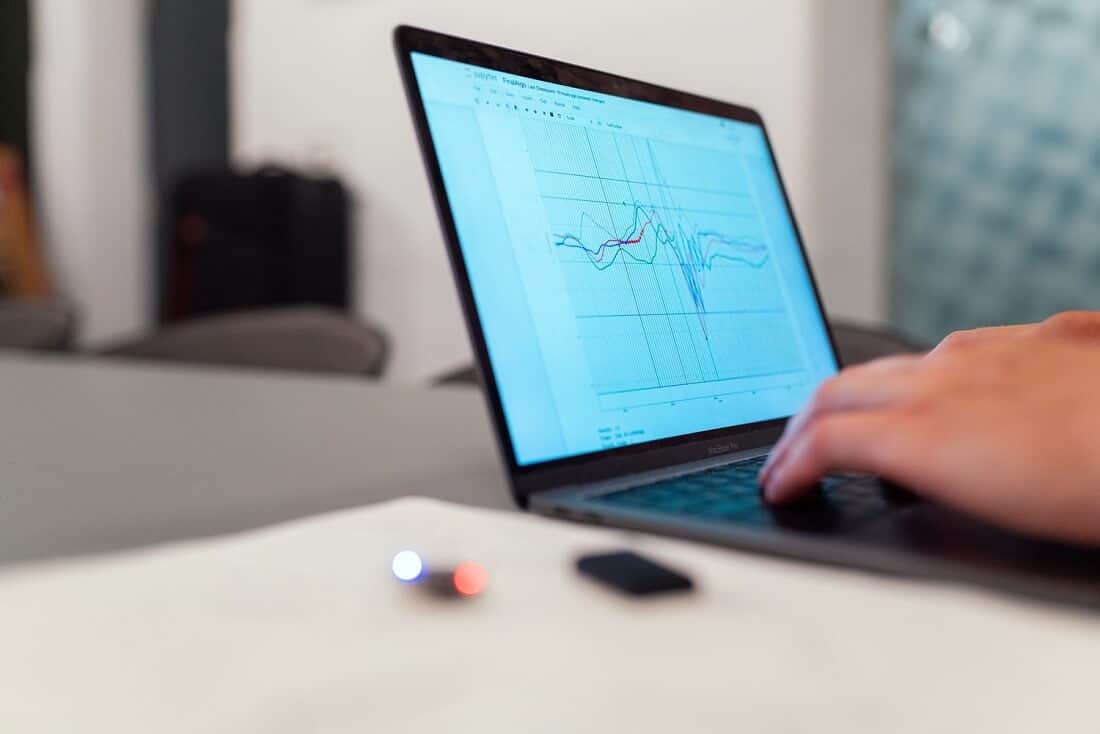FOREX educational Part 4
Track record – What is it and why do I need it?
A Track Record is an overview of past trading.
For example, it shows what your results were in the past year.
January 2,4%
February 3,1%
March 1,9%
April -2,3%
May 5,0% etc.
But it can also show the percentage of profitable trades and losing trades.
A more detailed Track Record can also advise you on what you are doing right and where you need to be careful.
If you would like to have your Trading Station checked by A.I. and give you an overview of past performances, you can try that out by clicking here.
This gives you insight on how successful you are and it creates value.
How does track record create Value?
First of all, this is valuable information to yourself.
Sometimes in your trading, it might seem you are not going anywhere, but if you take a step back, you might be surprised by how well you are doing.
But there is a second reason.
Others may not be as willing as you are to do the work, or they just don’t know how.
Many still want to make some money and will want to have others trading for them, but that is risky as those people never know for sure who is for real or not.
While doing due diligence, those people will want to see proof.
Having a Track Record creates value for yourself and those people as they can see what kind of results you had in the past and therefore hopefully will continue in future trading getting similar results.
Although this is not a guarantee, it does create some confidence.
Think of track record as going to a movie with actors who are well known, you don’t know if the movie is any good until you went to see it, but going by the actors you have seen before, you do get an idea of what to expect.
Taking another view is where you are the actor, you will need to have some good results to show if you want to be hired for the next movie.
Of course, you can do an audition, but your chances would be a lot less in comparison to when you featured in a few blockbusters.
Brokers
There’s a lot to be said about brokers and although I would want to mention a thing or two, I choose not to.
What I can tell you, that it’s best to check if they are registered with the FCA.
I’m very well aware of IB’s and how Brokers work, and I do realize it’s not easy for Retail Traders to make a consistent profit.
I’ll stick to my end of the line, and will continue with the options we have.
My guess is that the future is not set in stone and that we may see some changes in the near future.
If you like to stay in the loop, You’re invited to join my Community.
Successtory
Why don’t you tell me about a brand new car or trips to the beach?
Or how I can make a million dollars starting from scratch?
First of all, I do not want to you have an unrealistic expectation.
Second, I do not want you to start chasing after the big money as fast as you can.
Why? Because you would be in very dangerous waters.
My advice is to monitor risk as much as you can and to take small trades and consistent profits.
Make sure you have enough buffer on your account and don’t get greedy or lured into risk-taking based on past successes.
Not all may agree on that, but those people may very well be gone off the market next year anyway.
MT4 / MT5
Many Brokers use the MT4 / MT5 Platforms.
Those are platforms where you can automate your trading, or place your orders manually.
It lets you program your strategy so trading would run by itself.
I do not advice letting trades and orders run without monitoring, but you could preset orders and take only those trades you really want to have.
MT5 has a few more options but in most scenarios, MT4 will do just fine.
Passwords
There are two kinds of passwords available in MT4 / MT5.
Your own to trade, and a read-only password.
The read-only password, also known as Investor Password, can be shared with investors or linked to analyzing tools such as PsyQuation.
It allows them to see your trading and the results so they can see for themselves, but it will not interfere with your trading.
Hedging
Hedging is when you pick a trade and place another trade in the opposite direction.
Wherever the market goes next, one trading is winning, the other loses.
Basically, you freeze up the trade by letting it lose as much as you let it win.
This might be a way to make some money, but don’t forget the opposite trade is in the negative just as much as your gain.
Pitfalls
The most common reason you make a loss are just a few.
Did you pick the wrong direction?
Whatever analyses you use, almost every trader will agree you can’t be right all the time.
And when traders are new to the Market, most traders won’t be.
So try to rethink the reason why you pick a trade and review it once it’s done.
What did you do wrong, and what went right?
Also think of another possibility, even though you won a trade, were you just lucky, or did you really think it through?
Did the trade hit your Stop Loss?
What caused it hitting the Stop Loss?
Was it too close, did you do it right but the spread of the broker hit it anyway, did it hit because it was there in the first place?
Did you not take full advantage of the trades once you were winning?
Taking profits too early or taking them too late is another pitfall.
Once you have picked you trade, you should know where to take your profits.
There are ways to take profits automatically, first is a trailing stop.
A trailing stop can close in the profits when you are following a trend, but it can also kick you out of a trade on the worst possible moment.
The other way to take the profit is by using TP (Take Profit)
Of course, you can always close a trade manually at any time you want.
Did you get impatient or nervous?
Sometimes when you take a loss, or you get impatient you may want a quick trade to make up for it.
Usually, that ends up in losing even more which causes more panic.
If you find yourself caught up in trading like that, and don’t even have a good reason to take the trades anymore, step away from the market and come back the next day.
Do not get bummed out, because now you are your worst enemy if you don’t step away.
Did you get in too heavy or run out of Margin?
Going in too heavy is a common mistake, what is important to know is that trades are done with leverage.
That can really be a benefit, but also takes trades south much quicker.
Be aware you always have enough buffer so whatever trade is done, positive or negative, it will not influence your account too much.
Greed can really mess that up, just as much as fear can. Keep that under control if you find yourself in that place.
That would probably cover the majority of reasons, so if you do not want to lose, you will have to figure out how to deal with that.
Facts
What facts do we have once we enter a trade?
The only facts that I can come up with are even less.
The Market Fluctuates
On any given timeframe on the charts, you can see fluctuations.
You’ll see them on the 5-minute chart, as well on weekly charts.
If there are no fluctuations in price, there would not be a market.
You will not have a Loss until you take it or when you run out of Margin.
Taking a Loss can be manual, or by hitting a Stop Loss.
Also when you ignore a trade which is eating up your Margin can cause a Margin Call.
A Margin Call means the broker will close all your trades due to lack of funds in your account.
Some will warn you up front, others will just Close everything and you basically blew up the account.
Much more facts we don’t have really.
I do not have to wear a fancy suit or go to some guru in a hotel conference to convince me my 100% winning system is wrong.
Going with these facts, it’s possible to create your own 100% winning system. Try it out on a demo first as that takes years of experience!
I truly hope you will benefit from these very simple basics.
You would like to read Automatic Trading – What Is It






